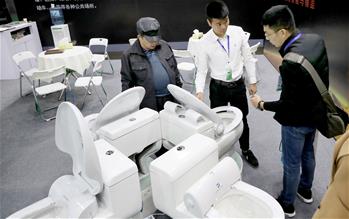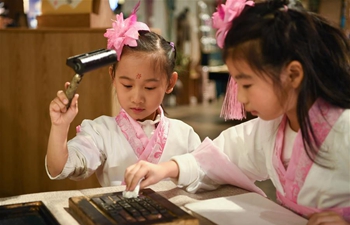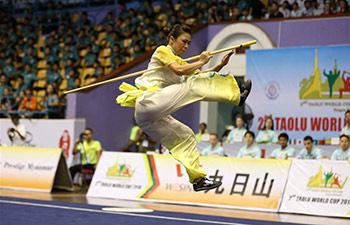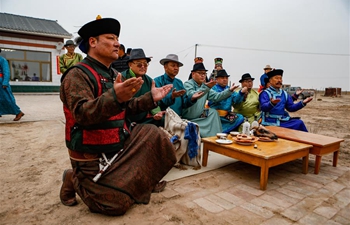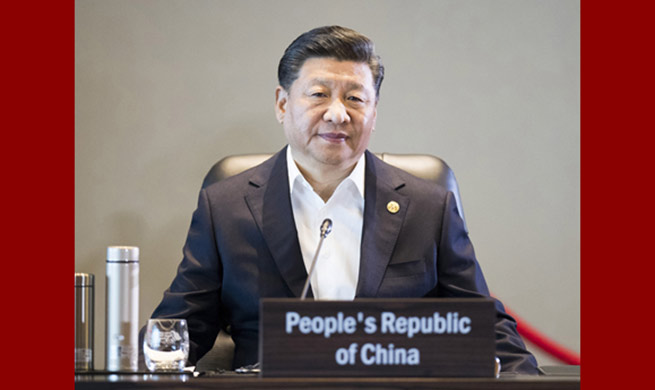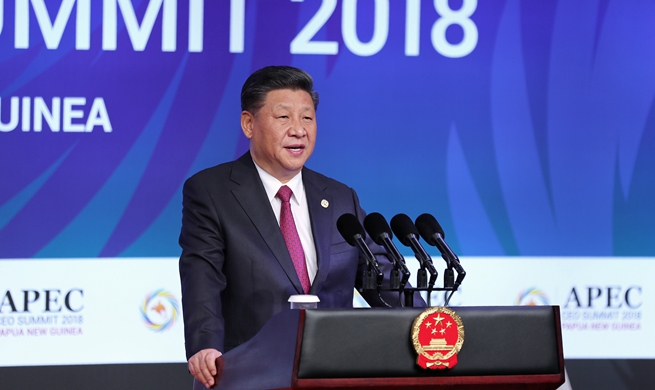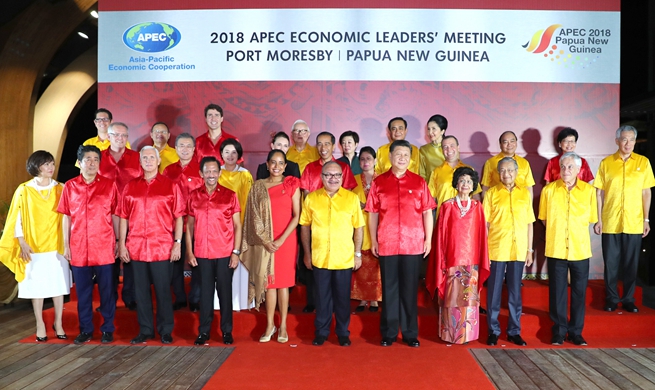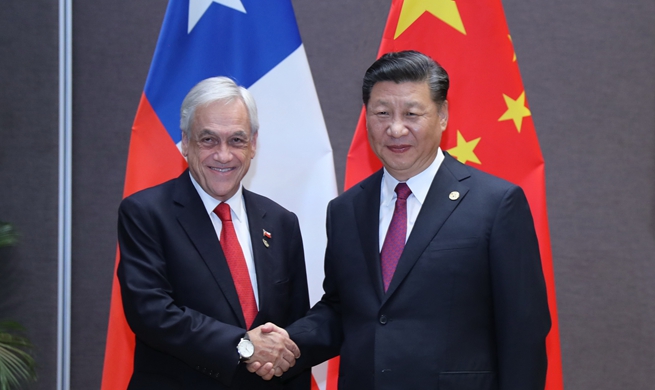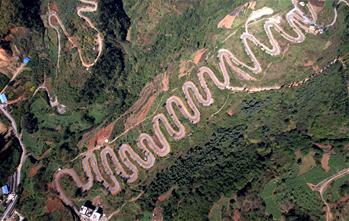JUBA, Nov. 18 (Xinhua) -- As South Sudan begins a new era ushered in by the recent peace agreement, local aid workers who have mostly been victims of the five-year conflict in which hundreds of them lost their lives are now hoping the security situation will improve and allow more unfettered access to thousands in need of emergency support.
Junior Ali, 31 old years old spokesperson for Smile Again Africa Development Organization (SAADO), a local NGO dealing with food security and livelihood that has been operating in the country prior to outbreak of conflict in December 2013, says they are very glad that the warring factions decided to lay down their weapons which he hopes will provide them unhindered access to areas they were unable to reach previously.
"In South Sudan it has been really so challenging; access has been a problem for humanitarian agencies because of so many check points and also attacks on premises of humanitarian agencies," Ali told Xinhua in Juba on Saturday.
"I do not know if it (peace) will hold but I am very optimistic that this time round something good is coming. I think now we are shifting from emergency response to building resilience of the communities. We are going to focus on building infrastructure like roads and good schools," he added.
President Salva Kiir and rebel leader Riek Machar signed the final revitalized peace agreement on Sept. 12 in Ethiopia which observers are hoping it will not collapse like previous ones.
The South Sudan conflict has killed nearly 400,000 people according to estimates from the London School of Hygiene and Tropical Medicine.
The UN says four million South Sudanese have been displaced internally and externally, hence making it one of the most prolonged humanitarian crisis. Relief agencies hope to reach 7 million people at risk of hunger and starvation in 2019.
"At the moment it would not be fair to say right now that we can now operate countrywide. It is a gradual process, but we are optimistic that with time when peace has been embraced by all these individual actors who are causing all these impediments there will be some calm and humanitarian agencies will work across the country," said Ali.
UN Office for the Coordination of Humanitarian Affairs (OCHA) estimates 98 aid workers have been killed during the conflict.
Bati Nyamiri, a 26 years old pump technician with the Nile Sustainable Development Organization which deals with building bore holes and sanitation in local communities said he hoped peace will allow his colleagues to reach neglected communities in areas they have not reached previously.
"People are suffering because of lack of clean water and now we have managed to change lives digging bore holes and now cholera related cases have reduced," said Nyamiri, adding that they have been able to improve access to clean water for communities they have managed to reach.
Nyamiri disclosed that they hope to start operating in areas they have not been to like Mundri, Yambio and Mvolo in Western Equatorial region due to insecurity.
"There is hope because we believe that this time this is real peace and we hope to go to places we have not been able to operate," said Nyamiri.
South Sudan has a total of 22,428 local humanitarian workers and an estimated 1,400 international NGO workers.
Meanwhile, Victoria Pitia Moga of Action Girls Africa, an entity that specializes in empowerment of the girl child and women, said they are looking forward to normalization of the security situation to resume operations in the restive Yei River State bordering Uganda which has been the epicenter of violence since the renewed fighting in July 2016.
"We shut down our operations in Yei due to conflict but now that peace has been signed we are hoping to go back when things normalize. Most of the women we were training in Yei have sought refuge in internally displaced camps," said Victoria adding they are planning to go and train women in Internally Displaced Persons (IDPs) camps.
Christina Corbett, OCHA South Sudan spokesperson told Xinhua, that humanitarians are still having access to people who need assistance obstructed.
In September, 65 access incidents were reported, with the majority in Unity, Central Equatorial and Jonglei, according to OCHA.
Criminals and civilians were responsible for half (48 percent) of all incidents, mostly involving robberies, ambushes and operational interference in Rubkona County and Juba.
Violence against humanitarian personnel and assets continues to represent around half of all reported incidents that stood at 52 percent.

